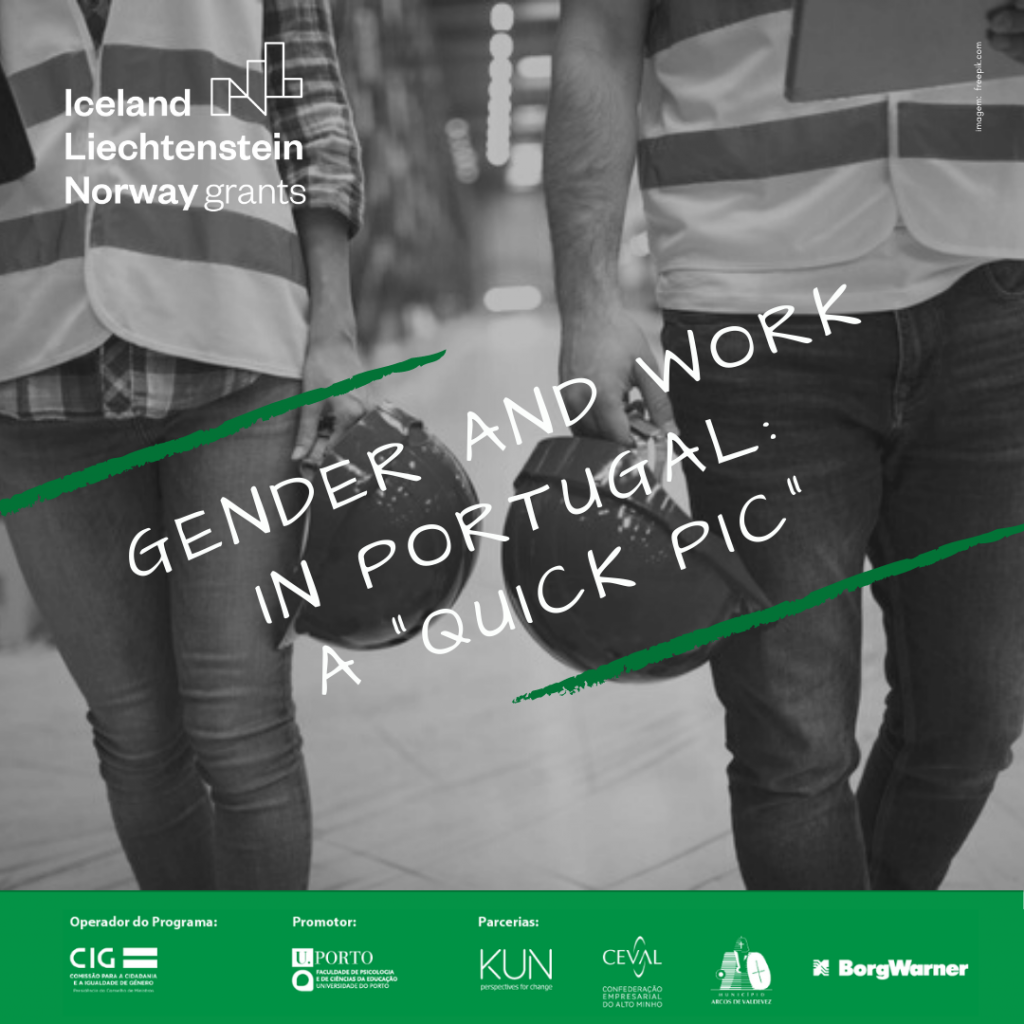
Since the 1970s, in Portugal, significant changes have been observed at the level of social policies on gender, namely a greater integration of women in the public space and also in the labour market (Ferreira & Monteiro, 2013). Nevertheless, the truth is that asymmetries and injustices persist in Portuguese companies and organizations:
- Portuguese women still earn less than Portuguese men for performing equal work or work of equal value (CITE, 2020). According EUROSTAT (2017) data, Portugal has a pay gap of 17.5% in 2016, higher than the European Union average of 16.2%.
- Part-time work is mostly female (EUROSTAT, 2017) and (One the one hand) if, on the one hand, this facet of flexibilization allowed a greater entry of women into the labour market, on the other hand, (this situation) it was one of the main responsible for low wages, the lack of professional development opportunities, lack of access to social benefits, weak social protection, and a higher risk of economic and social exclusion (Casaca, 2012).
- Regarding the types of contracts, in 2017, fixed-term contracts accounted for more than 18% of the Portuguese contracts universe and, in it, women were more represented than men (9.3% vs 9.2%), which is largely due, in the opinion of Casaca (2012), to issues related to work-domestic/family balance, causing women to be overlooked when it comes to creating better working conditions within companies and organizations.
- In the context of policies to balance work, family and personal life, Portugal is outside the OCDE merit framework (Mateus, 2019). According to the 5th European Survey on Working Conditions (Eurofound, 2010), in Portugal, men work more hours in paid work; while women spend more hours of work per week taking into account paid and unpaid work. Thus, despite the high rate of active women in Portugal, this increase in female participation in the labour market is not accompanied by a proportional increase in men’s participation in the private sphere. Thus, domestic work continues to be carried out mainly by women, constituting what is referred to as the double journey (Oliveira and Amâncio, 2002).
